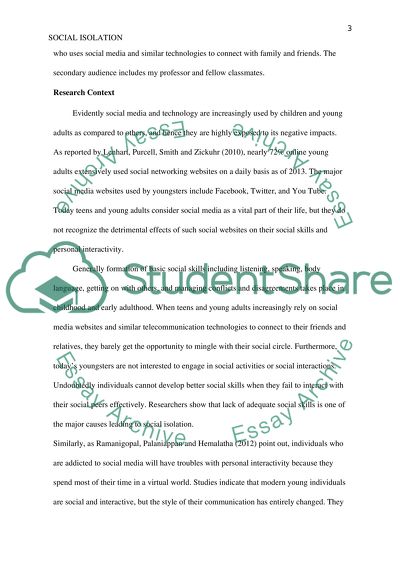Cite this document
(“Social iSolation Prompted by Technology & Social Media Research Paper”, n.d.)
Social iSolation Prompted by Technology & Social Media Research Paper. Retrieved from https://studentshare.org/miscellaneous/1648726-social-isolation-prompted-by-technology-social-media
Social iSolation Prompted by Technology & Social Media Research Paper. Retrieved from https://studentshare.org/miscellaneous/1648726-social-isolation-prompted-by-technology-social-media
(Social ISolation Prompted by Technology & Social Media Research Paper)
Social ISolation Prompted by Technology & Social Media Research Paper. https://studentshare.org/miscellaneous/1648726-social-isolation-prompted-by-technology-social-media.
Social ISolation Prompted by Technology & Social Media Research Paper. https://studentshare.org/miscellaneous/1648726-social-isolation-prompted-by-technology-social-media.
“Social ISolation Prompted by Technology & Social Media Research Paper”, n.d. https://studentshare.org/miscellaneous/1648726-social-isolation-prompted-by-technology-social-media.


